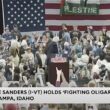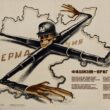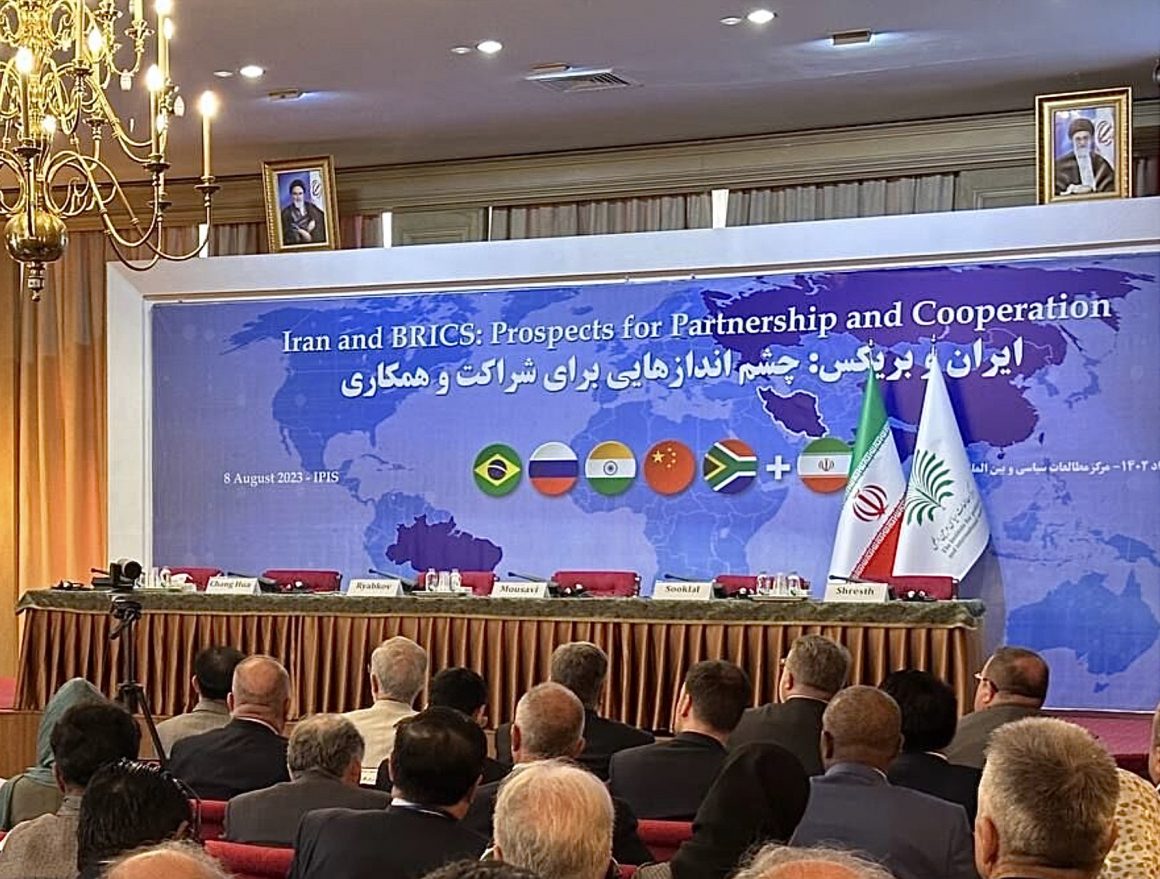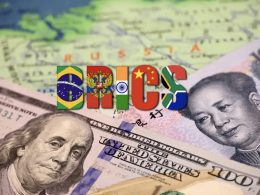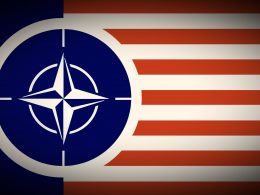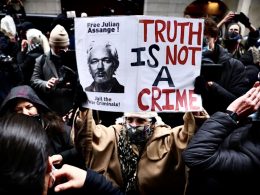The narrative actors who have an interest in seeing U.S. imperialism triumph are, in the midst of Washington’s defeat by Russia, having to pretend like the dramas which the hegemon instigates all count as “wins.” They’ve already been doing this for a long time throughout the empire’s decline, at least since the Ukraine proxy conflict escalated in February of last year. Regardless of who’s truly winning on the geopolitical chessboard, their tactic has been to point to whatever instance of turmoil the hegemon has brought about, and conclude that the hegemon is prevailing in all respects. When the vast majority of the globe showed itself not to support Washington’s goals in Ukraine; and then responded to the conflict by speeding up their transition away from the dollar and their embrace of the BRI; imperialism’s narrative managers acted like NATO’s re-unification in itself meant U.S. hegemony had been strengthened.
They also ignored the full context when it became clear that Russia had won the economic war, and that Ukraine’s military victory wasn’t mathematically possible. Pointing to developments like the greater militarization that Ukraine has undergone since the start of the conflict—a militarization that’s involved Kiev losing an effective domestic fighting force and becoming dependent on foreign assistance—the narrative managers have tried to portray the war as overall bad for Russia. The “strengthening” that U.S. capital and militarism have experienced within Ukraine and wider Europe has come at the expense of the imperial structure becoming weaker on a global scale. Thereby, this structure has been made all the more fragile and unsustainable, now at risk of being overthrown amid accelerated class conflict.
Because of the crises that the hegemon’s proxy war has brought upon the American and European economies; and because of this war’s forcing most of the Global South to become closer to China; an elevated desperation has come upon the imperial powers. A desperation that could cause them to fracture, fighting over their diminishing shares of neo-colonial spoils while the workers struggle sees an opportunity to get victory.
When it comes to the emerging hybrid war against BRICS—the hegemon’s backup maneuver now that its Ukraine failure has made a Taiwan proxy war too costly—the narrative managers are using this same deceptive tactic. They’re pointing to every instance where Washington’s schemes are causing a disruption to the progress of BRICS, or to the PRC’s broader goals, then using this as supposed proof that Washington is winning the chess game. Like with Ukraine, these narratives can ultimately only become untenable, as they omit the wider context in which Washington is shown to be losing.
When the imperialists got the International Criminal Court to create an arrest warrant for Vladimir Putin; then South Africa’s being an ICC member made Putin unable to travel to last month’s BRICS summit; the narrative managers counted this as a strategic victory for Washington. Politico talked about how Putin’s world is “shrinking,” which in a physical sense is true; Putin indeed can’t go to as many places as he used to be able to. In a political, economic, and cultural sense, though, the ability of Russia and the other players within the pro-PRC bloc to influence global affairs is continuing to grow. And it’s growing all the faster due to Russia’s having begun the special military operation.
That Russia’s leader is experiencing the costs of undertaking this operation doesn’t mean the operation hasn’t fulfilled its purpose within the transition to multipolarity. The hegemon’s maneuverings towards threatening Putin with a Milosevic-esque show trial haven’t reversed the historical processes which increasingly threaten the hegemon’s survival.
South Africa’s ICC membership—which can also at times represent a bad thing for the USA, whose war criminals often come under scrutiny from the Court—hasn’t stopped South Africa from advancing a crucial piece of BRICS progress. South Africa has decided to back Iran’s effort to become a BRICS member; an effort that, even if it experiences setbacks, has already strengthened the forces capable of challenging the hegemon. South Africa’s showing support for Iran’s ambitions has, at a moment when the hegemon is trying to bring South Africa under complete control, reaffirmed a decades-long relationship between the two countries. A relationship that helps render hopeless the hegemon’s attempts at turning Iran back into a client state, and at stopping the global economic projects which Iran is a vital contributor to.
After indigenous South Africans liberated themselves from apartheid, they governed with a mentality of sympathy towards any other country whose present form of governance was created out of struggle against colonizers; so naturally they were glad to form good relations with the Islamic Republic. What BRICS has done is strengthen this sense of fellowship between them. Which weakens the standing of those who wish to divide and destroy all who don’t consent to blood-enforced dollar hegemony, global U.S. military occupation, and neo-colonial debt enslavement.
Iran’s Press TV writes of this partnership’s implications for the future of the global power balance:
The inherent strength of the BRICS emanates from strong domestic based economies in the case of Brazil and India and significant outward linkages of Russia and China. South Africa benefits from its large resource base and proximity to untapped growth potential of the African continent. The group occupies 40 percent of global population, 30 percent of the land mass and nearly 25 percent of the GDP in purchasing power terms. According to Goldman Sachs estimates, the BRICS countries are expected to represent 47 percent of the global GDP by 2050. On the southernmost tip of the African continent, post-apartheid South Africa has been able to develop the ability and will to create and maintain a regional regime for the benefit of all, where other countries have asked it to play the role of a safe dominant power…Considering the influence, geopolitical weight and political role of South Africa, relations with the country will entail in great achievements and facilitate Iran’s cooperation with other countries of the continent. The two countries, due to the common understanding of many regional and international issues and shared cognitive approach toward regionalism, can work together and contribute to economic and political regionalism under the platform of the Indian Ocean littoral states, South-South cooperation and non-aligned countries.
These facts render ineffectual the attempts to discredit BRICS as a capable source of guidance for the Global South, and to demoralize all who desire a world free from imperial control. The recent attempts by apartheid regime-connected western capitalists like Elon Musk to portray South Africa as being at risk for a white genocide are an early part of the hybrid war against BRICS, and against the revolutionary governments throughout Africa. There’s a reason why these capitalists have been portraying South Africa’s Economic Freedom Fighters as seeking to exterminate whites, even though the org is rising largely due to support from the country’s white progressives: the EFF is showing itself to be a source of backing for not just Iran and multipolarity, but also the recent anti-colonial actions of Sehal leaders.
This month, EFF spokesman Sinawo Thambo said in a statement about the holiday celebrating Niger’s decolonization:
As we commemorate the valiant struggle for liberation from colonization in Niger, we also acknowledge the current resolute movement of Nigeriens against France. France, after Niger’s independence, continued meddling in Niger’s political affairs for power and control that ensured its thieving of mineral resources remained. The Nigerien populace has reached its tipping point against French exploitation of their land and valuable resources, particularly uranium. France has also stationed a military base in Niger…Yet, we emphasize the importance of a led revolution that stays resolute in liberating our continent from the clutches of western powers. May this Independence Day be etched in Niger’s memory, symbolizing lasting liberation from the grip of imperialism
Should the EFF continue to rise, the hegemon will come to have more of a reason to start targeting South Africa in the same ways it’s been targeting Ethiopia or Eritrea. These narrative attacks against the country’s most progressive forces are an attempt to prevent it from becoming more anti-imperialist than it already is, and ultimately to turn it into a force which sabotages BRICS. The EFF represents the element that could solidify South Africa’s role as an enemy of empire; contrary to what pro-colonial voices say, it deserves our support.
————————————————————————
If you appreciate my work, I hope you become a one-time or regular donor to my Patreon account. Like most of us, I’m feeling the economic pressures amid late-stage capitalism, and I need money to keep fighting for a new system that works for all of us. Go to my Patreon here.
To keep this platform effective amid the censorship against dissenting voices, join my Telegram channel.

